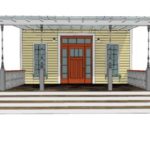When the School and College Organization for Prevention Educators (SCOPE) meets each year for its Annual Conference, its main goal is to help attendees guide, shape, and lead the prevention community — which includes examining alcohol- and drug-abuse and sexual-assault prevention, mental-health awareness, and hazing and bullying behaviors.
“The novel thing” about the conference, said SCOPE President Brian van Brunt, “is that it brings together different prevention groups that are working in college campuses and communities. We’re the first conference that really created the idea of getting all the prevention educators together.”
Suicide is a major focus area for prevention practitioners, which is why SCOPE organizers decided to implement a special suicide-prevention training session at this year’s conference, held Oct. 1-4 at the Rosen Plaza Hotel in Orlando. “People aren’t well versed in how to deal with the suicide question — are you thinking about killing yourself? — because it’s uncomfortable,” said David Denino, director emeritus of counseling services at Southern Connecticut State University and facilitator for the QPR Suicide Prevention Gatekeeper Trainer Certification Course, an optional program offered to all SCOPE conference attendees for an additional fee.
QPR Gatekeeper training, based on the “Question, Persuade, Refer” model, is presented by the QPR Institute, a suicide-prevention organization that offers in-person, 90-minute sessions as well as an online course designed to teach people — inside and outside the prevention community — to recognize suicide warning signs and intervene in a crisis. SCOPE’S day-long trainer seminar was designed to certify participants to become QPR Gatekeeper Instructors, allowing them to teach QPR curriculum to members of their communities or schools. “The Gatekeepers that are going back into their communities to teach have an awful lot of questions,” Denino said. “How do I teach this? How do I handle that?”
Gatekeeper Trainer sessions are broken into four modules. The first two cover understanding suicide data as well as instruction on the way suicidal individuals might communicate. The third portion is the actual teaching module — demonstrating how a full QPR training session works, including a standard PowerPoint presentation available to all instructors. The last module covers what the certification means — where instructors can teach and the elements that must be included in each session to ensure the training module remains consistent across the country.
Ten of the approximately 130 attendees at the SCOPE conference took part in the QPR Gatekeeper Trainer session. SCOPE partnered with the QPR Institute on the course to ensure practical takeaways for participants. “The people who go through this training will be certified for three years to go back to their communities and meet with classrooms of students and community groups, and have a discussion about suicide prevention and what to look for,” van Brunt said. “For us that was a natural blending.”



